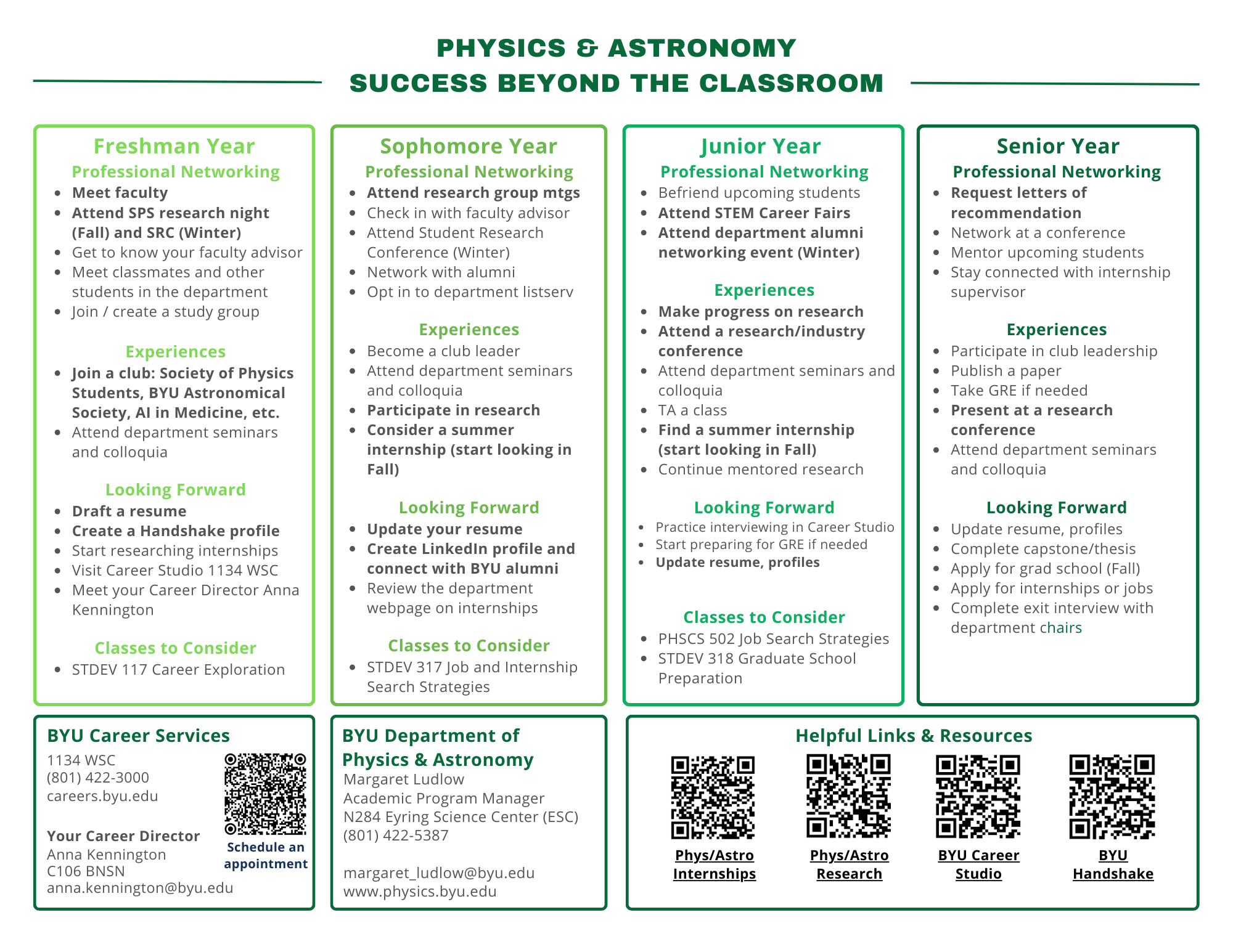Physics and astronomy majors find jobs in research and development in high-tech industries, in engineering, and computer software/IT . They go on to graduate school in all engineering fields, the physical or biological sciences, as well as to professional schools such as medicine, law (especially patent law), and business. They work in universities and government labs, observatories and planetariums. The Sloan Foundation pretty much sums it up as follows:
"More than most other majors, a physics degree is a passport into a broad range of science, engineering, and education careers."
-- Sloan Foundation
Online Career Resources
In Physics 191 and 291 we'll give you lots of information about careers in physics. But here are a few online resources for you to get started with:
- Careers Statistics for Physics Majors. Start here. Compilation from many sources: skills valued, employers, salaries
- What can I do with a physics degree? along with You Have Options poster (SPS)
- What do physicists do? (Career Cornerstone Center)
- Where do physicists work? (Career Cornerstone Center)
- Who hires physics majors? (AIP)
- Career information from the Society of Physics Students(SPS)
- General career advice from the American Physical Society (APS)
- Job information from Physics Today
- Presentation about Careers in Astronomy
How To Prepare Outside the Classroom
A great career takes more than good grades. Check out our success guide for meaningful activities you can pursue outside the classroom at any stage of the program.
P&A Path to Internship 2025.pdf
